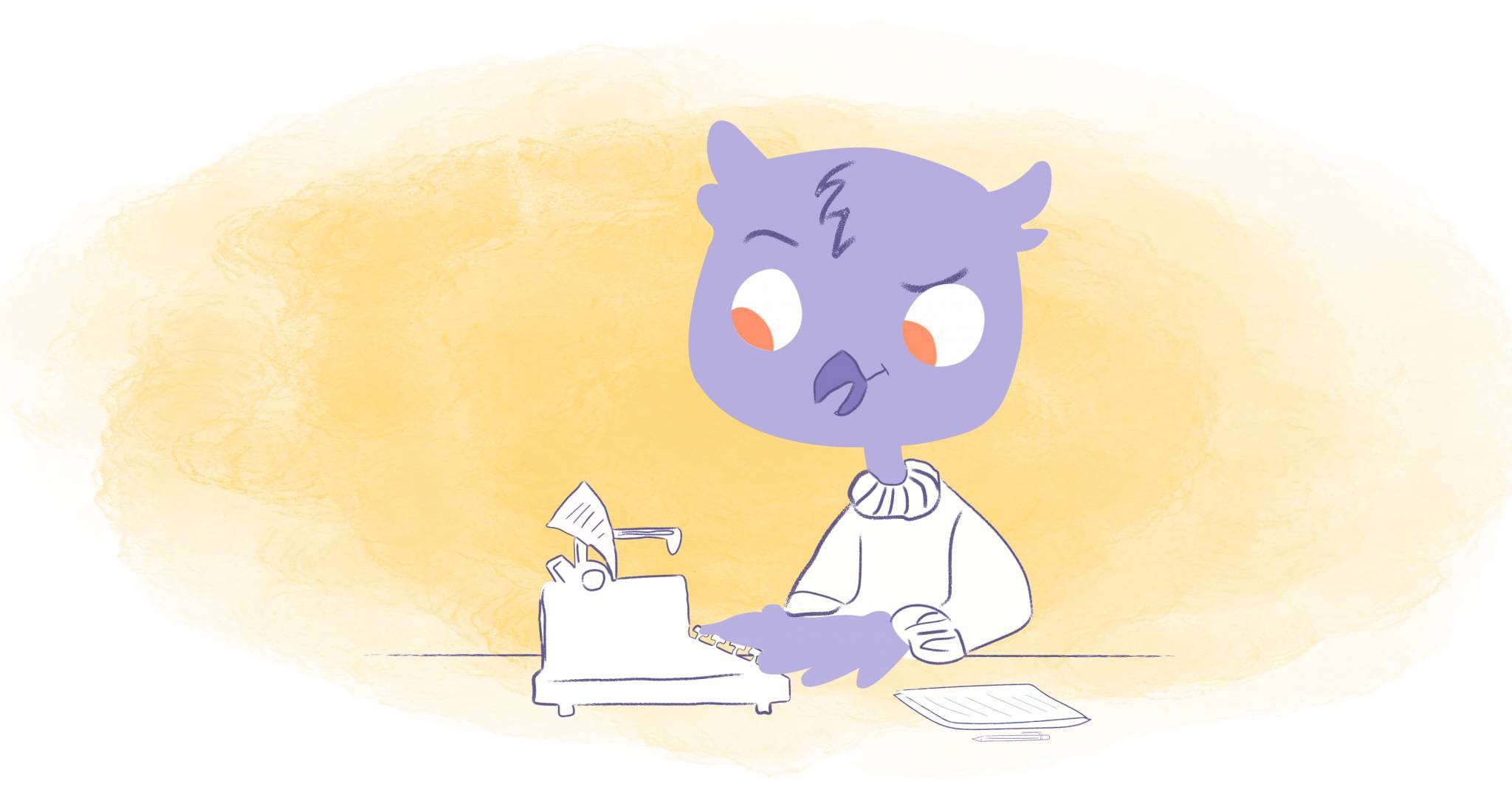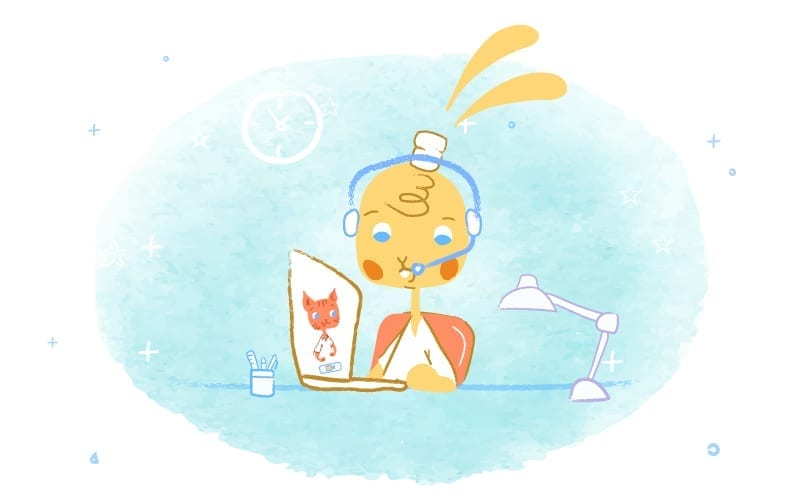

Most of us take the trusty and reliable calendar for granted. And, that’s really a shame. Like your best friend, your calendar is always there for you. They keep you in check and remind you of your priorities. And, they also protect you from having to go through uncomfortable situations.
That may sound a little over the top. But, if you take a step back, I think you could draw these parallels.
The thing is, like maintaining a healthy friendship, you’ve got to work at it. As opposed to taking your best friend for granted, you need to make time for them. You also need to be honest and committed to them. It also wouldn’t hurt to build rituals and be upfront about your needs.
While that makes sense when it comes to your interpersonal relationships, how can you achieve this with a calendar? Well, you can start by improving your calendar management.
Don’t settle for a default calendar.
My great-grandfather used to own a deli. One of the ways that he thanked his customers was by giving them this cool plaque that had a thermostat on the front and a paper calendar on the back. I have it hanging in my kitchen, and I still love the fact that the calendar is intact — it’s from 1950!
Local businesses don’t offer swag like this as much these days. But, if they do, it’s probably standard calendar that you can hang-up on your wall. But, do you know who else gifts you a calendar? All of the tech giants. If you get a brand new iPhone, you have access to Apple Calendar. Microsoft includes a calendar in its suite of Outlook tools. And, when you sign-up for Gmail, a Google Calendar is thrown in as well.
These online calendars work perfectly fine. They’re probably the three most popular and effective calendars around. But that doesn’t mean that you have to use them. If your default calendar doesn’t meet your specific needs, then search for a calendar app that does.
At the minimum, you should keep an eye out for calendars that can be customized, easily shared with others, and integrates with the tools that you frequently use. It should also have the unique features that you need, either personally or professionally. For example, if you need a calendar for meetings and work schedules, then you should check out options like Calendar, Doodle, or Teamup.
One calendar to rule them all.
Regardless of your preferred calendar, most of them allow you to create multiple calendars. Usually, this is one for work and another for personal commitments. You can also subscribe to calendars that contain other people’s schedules, holidays, or even the upcoming schedule of your favorite sports team.
In theory, this prevents your calendar from getting too cluttered. But, it can also lead to scheduling conflicts. Let’s say a client wants to meet you on Thursday afternoon. You accept the invite-only to notice that in your personal calendar, you have to take your child to the doctor. Now you have to reschedule one of these events.
Have one primary calendar, aka a master calendar, where your most important events are scheduled. Now when that client asks to meet with you, and you shared their calendar with them, they’ll see that you’re unavailable,e
Create time-blocks around your energy levels.
Time blocking is an effective way to manage your time. Why? Because to-do-lists are inferior, it discourages multitasking, and it makes it easier to say “no.” But, it only works when you plan these blocks around your energy levels.
Let’s say that you’re most productive in the morning from 9 to 11. That block should be used for your most crucial work. During low energy periods, when your brain feels foggy, you should schedule less important tasks like cleaning out your inbox. Or, even better, use these slots for breaks.
While this varies from person-to-person, you should practice the 52-17 rule. Here you would work for 52 minutes and then take a 17-minute break. And, I also suggest that you group similar activities in these blocks. For instance, block out three times per day to check your email and social media.
Be consistent.
If possible, keep your days and weeks consistent. While there are exceptions because of emergencies, holidays, or you feel like you’re in a rut, our brains love routines.
It may sound boring. But, routines remove uncertainty and give you a greater sense of control. They also help preserve our mental energy, help us remain focused, and quiet the tyranny of the urgent.
Don’t put off until tomorrow what you can do today.
I feel like we’ve all been in this situation of procrastination. You bump into an old acquaintance or hit-it-off with someone at a networking event. You want to keep the conversation going, so you plan to meet up at a later date. Unfortunately, you wait to put that into your calendar once you get home. But, because life happens, it completely slips your mind.
Whenever you plan on adding a new task or appointment, add it to your calendar immediately. It will prevent you from forgetting to schedule it. And, most importantly, it will avoid those embarrassing scheduling conflicts like double-bookings.
In the same vein, if you have to adjust your calendar, like rescheduling a meeting because you have a family emergency, update your calendar ASAP. How furious would you be if you showed up to a meeting and found out that it was canceled?
Be more selective.
If you want to maintain a more organized and less stressful life — then decluttering needs to be a priority. If you want to keep your house clean and live within your budget, then you wouldn’t merely buy items because they’re on sale or take other people’s garbage because it’s free.
The same idea applies to your calendar. If a new entry doesn’t serve a purpose, then don’t put it in your calendar. Examples would be unnecessary meetings, standing appointments, or reminders for mundane tasks.
Book your calendar well in advance.
I sometimes get frustrated when talking to one of my best friends. She tends to go down a rabbit hole and start worrying about things that are way off into the future. Look. I’m also a planner. But, I also do not obsess with saving a date five years from now.
For me, I think mapping out your calendar is more than fair. That doesn’t mean you’re going to fill out every slot and forget about it until next year. Instead, block out appointments and events for the upcoming year. Examples would be doctor/dentist appointments, weddings, conferences, or vacations that you have planned for this year.
Blocking these out as soon as possible gives you enough time to prepare. And, it reduces those pesky conflicts.
Use technology to your advantage.
Your online calendar is already a powerful and intuitive tool. Apple Calendar will automatically add events to your calendar if it picks-up an iMessage with a date in it. If you booked a hotel room with your Gmail address, it would automatically be added to your Google Calendar.
But you can take it to the next level. Take Calendar as an example. It uses machine learning to make smart suggestions on when, where, and how to schedule your time.
When you have some downtime, do a little digging to find out what other tools can be paired with your calendar to make managing it much easier and more manageable.











Albert Costill
My name is Albert Costill and I'm a content marketer at Calendar. If I can help people become more productive in my journey, even better. If you ever have a question about your Calendar or how you can use it - - don't hesitate to reach out. I'm a Calendar Pro.